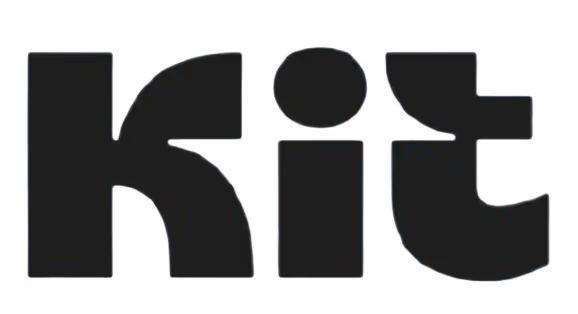What is Folk CRM? Modern AI Relationship Management Software
Discover Folk CRM and 7 AI relationship management strategies that boost small business customer retention by 45%. Complete implementation guide with tools and results.
The relationship management landscape has transformed dramatically with the integration of artificial intelligence, and Folk CRM represents a new generation of AI relationship management software designed specifically for small and medium businesses. This comprehensive guide explores how modern CRM systems like Folk CRM are revolutionizing customer relationships and driving measurable business growth for SMBs across the United States.
Small business CRM software has evolved from simple contact databases to sophisticated AI customer relationship management platforms that predict customer behavior, automate complex workflows, and deliver personalized experiences at scale. Companies implementing AI-powered CRM automation tools report average revenue increases of 25-45% within the first year of deployment.
The AI Relationship Management Revolution Transforming Small Business
Traditional customer relationship management focused on storing contact information and tracking basic interactions. Today's AI relationship management software analyzes customer behavior patterns, predicts future actions, and automatically optimizes engagement strategies. This shift represents more than technological advancement—it's a fundamental change in how businesses understand and serve their customers.
The integration of artificial intelligence into customer data management platforms enables small businesses to compete with enterprise-level personalization and automation capabilities. Modern relationship management software SMB solutions like Folk CRM democratize advanced customer intelligence that was previously available only to large corporations with dedicated data science teams.
What is Folk CRM? Understanding Modern Relationship Management

Folk CRM represents a new approach to small business CRM software that combines intuitive design with powerful AI capabilities. Unlike traditional CRM systems that require extensive training and complex setup processes, Folk CRM emphasizes simplicity while delivering sophisticated relationship management functionality.
The platform addresses common pain points that small businesses experience with traditional CRM systems: complicated user interfaces, expensive implementation costs, and features designed for enterprise rather than SMB needs. Folk CRM focuses on essential relationship management capabilities that directly impact revenue growth and customer satisfaction.
Key characteristics that distinguish Folk CRM from traditional customer relationship management systems include streamlined data entry processes, automated relationship scoring, and intelligent workflow suggestions that adapt to individual business patterns. The platform integrates seamlessly with existing business tools while providing actionable insights that drive immediate improvements in customer engagement.
Core Features of Folk CRM
Folk CRM's AI relationship management software capabilities center around three primary areas: relationship intelligence, automation efficiency, and growth optimization. The relationship intelligence component analyzes customer interactions across multiple touchpoints to identify engagement patterns, communication preferences, and relationship health indicators.
The automation efficiency features eliminate repetitive tasks that typically consume significant time in traditional CRM workflows. Automated follow-up sequences, intelligent task prioritization, and predictive scheduling help small business teams focus on high-value relationship building activities rather than administrative tasks.
Growth optimization tools within Folk CRM provide actionable recommendations for improving customer relationships and identifying new business opportunities. The platform's AI algorithms analyze relationship data to suggest optimal timing for outreach, identify upselling opportunities, and predict customer lifetime value.
Strategy 1: AI-Powered Contact Intelligence and Scoring
Modern AI customer relationship management systems excel at transforming raw contact data into actionable relationship intelligence. This capability represents a significant advancement over traditional small business CRM software that simply stores contact information without providing strategic insights.

Advanced customer data management platforms like Customers.ai and Folk CRM analyze communication patterns, engagement frequency, and response rates to generate relationship health scores. These scores help business owners prioritize their time and focus on relationships with the highest potential for growth.
Implementation Framework for Contact Intelligence:
Week 1: Data Integration and Cleansing
- Import existing contact databases from email platforms, spreadsheets, and previous CRM systems
- Standardize contact information formats and eliminate duplicate entries
- Categorize contacts based on business relationship type and engagement history
- Establish baseline metrics for relationship strength and engagement levels
Week 2: AI Scoring Configuration
- Configure relationship scoring algorithms based on business priorities and goals
- Set up automated data collection from email platforms, social media, and website interactions
- Define engagement triggers that influence relationship scores
- Create custom scoring criteria that reflect specific business relationship values
Week 3: Intelligence Dashboard Setup
- Deploy relationship intelligence dashboards that provide real-time insights
- Configure automated alerts for relationship changes and opportunities
- Set up reporting systems that track relationship health trends over time
- Train team members on interpreting and acting on relationship intelligence data
Measurable Results from AI Contact Intelligence:
- Relationship quality scores improve identification of high-value prospects by 35-50%
- Automated contact prioritization increases conversion rates by 20-30%
- Predictive insights reduce customer churn by 15-25%
- Time spent on relationship management tasks decreases by 40-60%
Strategy 2: Automated Workflow and Pipeline Management
AI sales pipeline management represents one of the most impactful applications of artificial intelligence in relationship management software SMB solutions. Traditional pipeline management relies on manual updates and subjective assessments, while AI-powered systems provide objective insights and automated progression tracking.
Comprehensive CRM automation tools like Folk CRM automate pipeline progression based on predefined criteria and customer behavior patterns. These systems eliminate the manual effort required to move prospects through sales stages while ensuring consistent follow-up and engagement.
Advanced Pipeline Automation Capabilities:
Intelligent Stage Progression: AI algorithms analyze customer interactions, response patterns, and engagement levels to automatically advance or hold prospects at appropriate pipeline stages. This eliminates the guesswork in traditional pipeline management and ensures prospects receive appropriate attention at each stage.
Predictive Timeline Forecasting: Machine learning models analyze historical deal data to predict realistic closing timeframes for active opportunities. These predictions help small businesses allocate resources effectively and set realistic revenue forecasts.
Automated Task Generation: Smart workflow systems create relevant tasks and follow-up reminders based on pipeline stage, customer behavior, and optimal timing algorithms. This ensures no opportunities fall through cracks while maintaining consistent prospect engagement.
Integration with Business Systems: Modern AI relationship management software integrates seamlessly with email platforms, calendar systems, and communication tools to provide complete visibility into customer interactions across all touchpoints.
Implementation Roadmap for AI Pipeline Management:
Phase 1: Pipeline Structure Optimization (Weeks 1-2)
- Define clear pipeline stages that reflect your specific business sales process
- Establish objective criteria for stage progression and automated decision-making
- Map existing opportunities to new pipeline structure for baseline measurement
- Configure automated workflow rules and progression criteria
Phase 2: AI Integration and Training (Weeks 3-4)
- Connect CRM system to email platforms, calendar tools, and communication channels
- Upload historical deal data to train AI prediction models
- Configure automated task creation and reminder systems
- Set up intelligent reporting and forecasting dashboards
Phase 3: Team Training and Optimization (Weeks 5-6)
- Train team members on new automated workflow processes
- Establish protocols for AI-suggested actions and manual override procedures
- Monitor system performance and adjust automation rules based on results
- Implement feedback loops for continuous AI model improvement
Strategy 3: AI-Enhanced Customer Communication and Engagement
Communication automation represents a critical component of effective AI customer relationship management, enabling small businesses to maintain consistent, personalized engagement with their entire customer base. Modern customer data management platforms leverage artificial intelligence to optimize message timing, content personalization, and channel selection.

Sophisticated email marketing automation platforms like ActiveCampaign integrate directly with relationship management software SMB solutions to create seamless communication workflows. These integrations ensure that customer relationship data informs marketing automation while marketing interactions update relationship intelligence.
Advanced Communication Automation Features:
Behavioral Trigger Sequences: AI algorithms monitor customer behavior across websites, email interactions, and social media engagement to trigger appropriate communication sequences. These automated workflows ensure timely, relevant outreach based on actual customer actions rather than arbitrary schedules.
Personalization at Scale: Machine learning models analyze individual customer preferences, communication history, and response patterns to customize message content, timing, and delivery channels. This level of personalization was previously impossible for small businesses to achieve manually.
Multi-Channel Orchestration: Modern AI relationship management software coordinates communication across email, SMS, social media, and direct mail to create cohesive customer experiences. The AI optimizes channel selection based on individual customer preferences and response probabilities.
Sentiment Analysis and Response Optimization: Natural language processing capabilities analyze customer responses and feedback to adjust communication strategies automatically. This ensures that messaging remains relevant and engaging over time.
Implementation Strategy for AI Communication:
Week 1: Communication Audit and Planning
- Analyze existing customer communication patterns and response rates
- Identify high-value communication opportunities and optimization potential
- Map customer journey stages to appropriate communication sequences
- Establish baseline metrics for communication effectiveness measurement
Week 2: Platform Integration and Sequence Development
- Integrate CRM system with email marketing and communication platforms
- Develop automated communication sequences for different customer segments
- Create personalized content templates that adapt to customer data
- Configure behavioral triggers and response-based workflow adjustments
Week 3: Testing and Refinement
- Deploy communication automation to small customer segments for testing
- Monitor engagement rates, response patterns, and conversion outcomes
- Adjust timing, content, and channel strategies based on performance data
- Train team members on monitoring and optimizing automated communication
Strategy 4: Predictive Analytics for Relationship Management
Predictive analytics transforms reactive relationship management into proactive customer engagement strategies. AI sales pipeline management systems analyze historical data patterns to forecast customer behavior, identify risk factors, and suggest optimal intervention strategies.

Business intelligence platforms like Zoho Analytics integrate with CRM automation tools to provide comprehensive predictive insights. These analytics capabilities enable small businesses to anticipate customer needs and proactively address potential issues before they impact relationships.
Core Predictive Analytics Applications:
Customer Lifetime Value Prediction: Machine learning models analyze purchase history, engagement patterns, and relationship duration to predict the total value each customer will generate. This information helps prioritize relationship investment and resource allocation decisions.
Churn Risk Identification: AI algorithms identify early warning signs of customer disengagement by analyzing communication frequency, response rates, and behavioral changes. Early identification enables proactive retention efforts that can save valuable customer relationships.
Opportunity Scoring and Prioritization: Predictive models evaluate multiple factors to score relationship opportunities based on likelihood to convert, potential deal size, and expected timeline. This scoring helps sales teams focus efforts on the most promising prospects.
Optimal Engagement Timing: Advanced analytics determine the best times and frequency for customer outreach based on individual response patterns and industry benchmarks. This optimization significantly improves communication effectiveness and response rates.
Implementation Framework for Predictive Analytics:
Phase 1: Data Foundation Building (Weeks 1-3)
- Consolidate customer data from CRM, email systems, and interaction platforms
- Clean and standardize data formats for accurate analysis
- Establish data quality processes and validation procedures
- Create comprehensive customer profiles that combine all available data points
Phase 2: Model Development and Training (Weeks 4-6)
- Select appropriate machine learning algorithms for different prediction tasks
- Train models using historical customer interaction and outcome data
- Validate prediction accuracy using holdout datasets
- Optimize model parameters for maximum predictive performance
Phase 3: Integration and Deployment (Weeks 7-9)
- Integrate predictive models with existing CRM and communication systems
- Deploy real-time scoring and recommendation systems
- Create automated workflows based on predictive insights
- Establish monitoring systems for prediction accuracy and business impact
Strategy 5: Integration with Business Communication Platforms
Modern AI relationship management software excels when integrated with comprehensive business communication ecosystems. The most effective implementations connect CRM systems with email platforms, messaging tools, and collaboration software to create unified customer intelligence.

Enterprise communication platforms like Google Workspace provide the foundation for integrated relationship management systems. These integrations ensure that customer relationship data flows seamlessly between communication tools and CRM platforms.
Advanced Integration Capabilities:
Email Intelligence and Automation: AI-powered email analysis extracts relationship insights from ongoing communication patterns. The system identifies key contacts, tracks engagement levels, and suggests optimal follow-up strategies based on email interaction data.
Calendar Integration and Meeting Optimization: Smart calendar integration ensures that relationship management activities align with meeting schedules and availability. AI algorithms suggest optimal meeting times and automatically update relationship records based on calendar activities.
Document and Project Collaboration: Integration with project management and document collaboration tools provides context for customer relationships. The system tracks project progress, deliverable timelines, and collaboration patterns to inform relationship strategies.
Communication Channel Optimization: AI analysis determines optimal communication channels for different customers and relationship types. The system automatically routes communications through channels that maximize response rates and engagement levels.
Strategy 6: Advanced Customer Data Analytics and Insights
Sophisticated customer data management platforms transform relationship information into strategic business intelligence. AI relationship management software analyzes interaction patterns, communication preferences, and behavioral trends to provide actionable insights for business growth.

Advanced analytics platforms like Amplitude integrate with CRM systems to provide deep customer behavior insights. These analytics capabilities help small businesses understand customer journey patterns and optimize relationship strategies for maximum impact.
Core Analytics Applications:
Relationship Health Monitoring: AI algorithms continuously assess relationship strength based on communication frequency, response quality, and engagement trends. These health scores help prioritize relationship maintenance efforts and identify at-risk accounts.
Engagement Pattern Analysis: Machine learning models identify optimal communication patterns for different customer segments. The analysis reveals when customers are most likely to respond positively and what types of content drive the strongest engagement.
Revenue Attribution and Forecasting: Advanced analytics track how relationship management activities directly impact revenue generation. The system provides clear attribution between relationship investments and business outcomes.
Customer Journey Optimization: AI analysis identifies common customer journey patterns and suggests improvements to relationship management processes. These insights help optimize the customer experience and accelerate relationship development.
Strategy 7: AI-Powered Sales and Marketing Automation
The convergence of sales and marketing automation through AI creates powerful synergies in relationship management. Modern systems coordinate marketing campaigns with sales activities to create cohesive customer experiences that drive both engagement and conversion.

Comprehensive marketing automation platforms like GetResponse integrate seamlessly with AI customer relationship management systems. These integrations ensure that marketing activities inform sales processes while sales interactions enhance marketing personalization.
Advanced Automation Capabilities:
Lead Scoring and Qualification: AI algorithms analyze website behavior, email engagement, and social media interactions to score leads automatically. The system prioritizes high-quality prospects and routes them to appropriate sales team members.
Dynamic Content Personalization: Machine learning models customize marketing content based on relationship data and customer preferences. This personalization extends beyond basic demographic information to include behavioral patterns and interaction history.
Cross-Channel Campaign Coordination: AI orchestrates marketing campaigns across multiple channels while maintaining consistency with relationship management strategies. The system ensures that marketing messages align with sales conversations and relationship development goals.
Performance Optimization and Testing: Automated testing capabilities continuously optimize campaign performance based on relationship data and conversion outcomes. The system suggests improvements and automatically implements successful variations.
Essential AI Tools for Relationship Management Success
Implementing effective AI relationship management requires carefully selected tools that work together to create comprehensive customer intelligence. The following platforms represent the most effective combination of capabilities for small business implementation.
Customer Communication and Engagement Tools

ManyChat provides AI-powered chatbot capabilities that integrate with CRM systems to automate customer service and lead qualification. The platform handles initial customer interactions while gathering relationship data for the primary CRM system.

Tidio offers live chat and chatbot functionality designed specifically for small businesses. The platform's AI capabilities help qualify leads and provide immediate customer support while feeding interaction data to relationship management systems.
Email Marketing and Automation Platforms

Moosend delivers sophisticated email marketing automation that integrates with CRM platforms. The system's AI capabilities optimize send times, subject lines, and content personalization based on relationship data.

Kit (formerly ConvertKit) specializes in email marketing automation for creators and small businesses. The platform's AI features enhance relationship management by providing detailed engagement analytics and automated segmentation.
Project Management and Collaboration Integration

Taskade offers AI-powered project management capabilities that integrate with relationship management workflows. The platform helps coordinate customer projects while maintaining comprehensive relationship data.
Advanced Analytics and Reporting

DashThis provides comprehensive reporting dashboards that aggregate data from multiple CRM and marketing platforms. The system creates unified relationship performance reports that inform strategic decisions.
Lead Generation and Prospecting Tools

Hunter automates prospect research and contact discovery processes. The platform integrates with CRM systems to streamline lead generation and ensure comprehensive prospect data collection.

Smartlead specializes in cold email automation and lead nurturing sequences. The platform's AI capabilities optimize outreach timing and content personalization for maximum response rates.
Implementation Roadmap for Small Businesses
Successfully implementing AI relationship management software requires a structured approach that minimizes disruption while maximizing adoption. The following roadmap provides a proven framework for small businesses transitioning to AI-powered CRM systems.
Phase 1: Foundation Building and Data Preparation (Months 1-2)
Data Infrastructure Development: The foundation of effective AI customer relationship management begins with comprehensive data collection and organization. Small businesses often underestimate the importance of data quality in AI system performance, leading to disappointing results despite significant technology investments.
Successful implementation starts with consolidating customer information from all existing sources: email platforms, spreadsheets, previous CRM systems, and manual records. This consolidation process reveals data gaps and quality issues that must be addressed before AI algorithms can deliver accurate insights.
Data standardization follows consolidation, ensuring that customer information follows consistent formats and naming conventions. Standardized data enables AI algorithms to identify patterns and make accurate predictions about customer behavior and relationship development opportunities.
Strategic Planning and Goal Setting: Clear objective definition drives successful AI relationship management implementation. Small businesses must identify specific, measurable goals that AI technology will help achieve: increased customer retention, improved sales conversion rates, or enhanced customer satisfaction scores.
Budget allocation for AI relationship management software should consider both initial implementation costs and ongoing optimization investments. Successful deployments typically require 3-6 months of focused attention and gradual capability expansion based on initial results.
Timeline development must balance ambitious goals with realistic implementation constraints. Small businesses often achieve better results with gradual, methodical implementation rather than attempting to deploy all AI capabilities simultaneously.
Phase 2: Core System Deployment and Team Training (Months 3-4)
Platform Selection and Configuration: Choosing the right AI relationship management software platform requires careful evaluation of business needs, technical requirements, and growth plans. Folk CRM and similar platforms offer different strengths and integration capabilities that must align with existing business processes.
Configuration should begin with essential features and gradually expand to advanced capabilities. This approach allows teams to master basic functionality before introducing complex AI features that require more sophisticated understanding and management.
Integration with existing business tools ensures that AI relationship management enhances rather than disrupts current workflows. Successful implementations maintain continuity while introducing incremental improvements that demonstrate clear value.
Team Training and Change Management: User adoption represents the most critical factor in AI relationship management success. Teams must understand not only how to use new tools but also how AI insights inform better decision-making and customer engagement strategies.
Training programs should emphasize practical applications and real-world scenarios rather than theoretical AI concepts. Small business teams respond better to hands-on learning that demonstrates immediate value and practical benefits.
Change management processes help teams transition from manual relationship management to AI-assisted workflows. Successful transitions acknowledge the learning curve while providing support and encouragement throughout the adoption process.
Phase 3: Advanced Feature Integration and Optimization (Months 5-6)
AI Feature Expansion: Advanced AI capabilities should be introduced gradually after teams master basic CRM functionality. Features like predictive analytics, automated workflow optimization, and intelligent communication sequencing require deeper understanding and more sophisticated management.
Performance monitoring becomes increasingly important as AI capabilities expand. Teams must understand how to interpret AI recommendations, when to override automated decisions, and how to provide feedback that improves system performance over time.
Continuous optimization ensures that AI relationship management systems evolve with business needs and customer behavior changes. Regular review and adjustment of AI parameters maintains optimal performance and maximizes return on technology investment.
Measuring ROI and Performance Optimization
Effective measurement of AI relationship management software performance requires comprehensive tracking of both quantitative metrics and qualitative improvements. Small businesses must establish baseline measurements before implementation to accurately assess improvement and return on investment.
Key Performance Indicators for AI Relationship Management:
Customer Retention Metrics:
- Customer churn rate reduction (target: 15-25% improvement within 6 months)
- Customer lifetime value increase (target: 20-35% improvement within 12 months)
- Relationship health score improvements (target: continuous upward trend)
- Customer satisfaction score increases (target: 10-20% improvement within 6 months)
Sales Performance Metrics:
- Sales cycle length reduction (target: 20-30% decrease in average time to close)
- Conversion rate improvements (target: 15-25% increase in prospect-to-customer conversion)
- Pipeline velocity acceleration (target: 25-40% increase in deal progression speed)
- Revenue per customer increases (target: 20-30% improvement through upselling and cross-selling)
Operational Efficiency Metrics:
- Time spent on administrative tasks (target: 40-60% reduction through automation)
- Data entry accuracy improvements (target: 95%+ accuracy through automated data collection)
- Follow-up consistency (target: 100% automated follow-up adherence)
- Team productivity increases (target: 25-40% improvement in customer-facing activities)
Advanced Performance Optimization Strategies:
Continuous A/B Testing: Regular testing of communication strategies, workflow processes, and engagement approaches ensures optimal performance. AI systems provide detailed analytics that inform testing decisions and measure improvement impact.
Customer Feedback Integration: Direct customer feedback provides qualitative insights that complement quantitative analytics. AI relationship management systems should incorporate customer preferences and satisfaction feedback into optimization algorithms.
Competitive Benchmarking: Regular comparison with industry benchmarks helps identify improvement opportunities and validate performance gains. Small businesses can leverage industry reports and peer comparisons to optimize their relationship management strategies.
Advanced Integration Strategies and Best Practices
Successful AI relationship management implementation extends beyond individual platform deployment to encompass comprehensive business process optimization. The most effective implementations create synergies between different business systems while maintaining simplicity and user adoption.
Cross-Platform Data Synchronization
Modern small business CRM software must integrate seamlessly with existing business tools to provide comprehensive customer intelligence. Integration challenges often create data silos that limit AI effectiveness and prevent comprehensive relationship insights.

Automation platforms like Make (formerly Integromat) enable complex integrations between CRM systems and business tools. These integrations ensure that customer relationship data remains synchronized across all platforms while maintaining data accuracy and consistency.
Integration Best Practices:
Real-Time Data Synchronization: Automated data synchronization ensures that customer information remains current across all business systems. Real-time updates prevent data inconsistencies that can undermine AI algorithm accuracy and relationship management effectiveness.
Bi-Directional Data Flow: Effective integrations ensure that information flows in both directions between systems. CRM data should inform marketing automation while marketing interactions should update relationship records automatically.
Error Handling and Data Validation: Robust integration systems include error handling capabilities that prevent data corruption and maintain system reliability. Automated validation processes ensure data quality while alerting users to potential issues.
Security and Compliance Considerations
AI customer relationship management systems handle sensitive customer information that requires appropriate security measures and compliance protocols. Small businesses must balance accessibility with security to protect customer data while enabling effective relationship management.
Data Security Framework:
- Implement role-based access controls that limit data access based on business necessity
- Establish data encryption protocols for customer information storage and transmission
- Create regular backup procedures that ensure data recovery capabilities
- Develop incident response plans for potential security breaches or data loss
Compliance Requirements:
- Ensure GDPR compliance for customer data collection, storage, and processing
- Implement CAN-SPAM compliance for email marketing automation
- Establish data retention policies that balance business needs with privacy requirements
- Create customer data access and deletion procedures for compliance requests
Future Trends in AI Relationship Management
The evolution of AI relationship management software continues to accelerate, with emerging technologies promising even greater capabilities for small business customer engagement. Understanding these trends helps businesses make strategic technology investments that position them for long-term success.
Emerging AI Capabilities:
Conversational AI Integration: Advanced natural language processing will enable more sophisticated customer interactions through chatbots and virtual assistants. These systems will handle complex customer requests while maintaining relationship context and continuity.
Predictive Customer Journey Mapping: Future AI systems will predict entire customer journeys rather than individual interactions. This capability will enable businesses to optimize entire relationship lifecycles rather than individual touchpoints.
Emotional Intelligence and Sentiment Analysis: Advanced AI will better understand customer emotions and sentiment patterns. This understanding will inform more empathetic and effective relationship management strategies.
Industry-Specific Relationship Models: AI systems will develop specialized capabilities for different industries and business types. These specialized models will provide more accurate predictions and recommendations for specific business contexts.
Getting Started with Folk CRM Implementation
Beginning your AI relationship management journey with Folk CRM requires careful planning and realistic expectations. The most successful implementations start small, focus on immediate value creation, and gradually expand capabilities based on proven results.
Week 1: Assessment and Planning
- Evaluate current relationship management processes and identify improvement opportunities
- Define specific goals and success metrics for AI implementation
- Inventory existing customer data and identify integration requirements
- Establish team roles and responsibilities for CRM implementation and management
Week 2: Platform Setup and Data Migration
- Create Folk CRM account and configure basic settings
- Import existing customer data and establish data quality standards
- Set up integrations with essential business tools and communication platforms
- Train initial users on basic platform functionality and best practices
Week 3: Workflow Configuration and Testing
- Configure automated workflows for common relationship management tasks
- Set up communication sequences and engagement tracking systems
- Test AI features with small customer segments to validate performance
- Establish monitoring and reporting procedures for ongoing optimization
Week 4: Full Deployment and Optimization
- Deploy full system capabilities to entire customer database
- Monitor performance metrics and adjust configurations based on results
- Train all team members on advanced features and optimization techniques
- Establish ongoing improvement processes and regular review schedules
Conclusion: Transforming Business Relationships with AI
AI relationship management software represents a fundamental shift in how small businesses build and maintain customer relationships. Platforms like Folk CRM democratize sophisticated customer intelligence capabilities that were previously available only to enterprise organizations with dedicated data science resources.
The key to successful implementation lies in understanding that AI enhances rather than replaces human relationship building. The most effective AI customer relationship management strategies combine technological capabilities with authentic human engagement to create meaningful, lasting customer relationships.
Small businesses that embrace AI relationship management software position themselves for sustained competitive advantage in increasingly crowded markets. The combination of improved efficiency, enhanced personalization, and predictive insights creates multiple avenues for business growth and customer satisfaction improvement.
The investment in CRM automation tools and AI relationship management capabilities pays dividends through improved customer retention, increased sales efficiency, and enhanced customer satisfaction. As AI technology continues to evolve, early adopters of platforms like Folk CRM will maintain significant advantages in customer relationship effectiveness and business growth.
Success with AI relationship management software requires commitment to data quality, user adoption, and continuous optimization. Small businesses that approach implementation systematically while maintaining focus on customer value creation achieve the most significant returns on their AI relationship management investments.
Ready to transform your customer relationships with AI? Start your Folk CRM journey today and discover how modern AI relationship management software can drive measurable growth for your small business.








